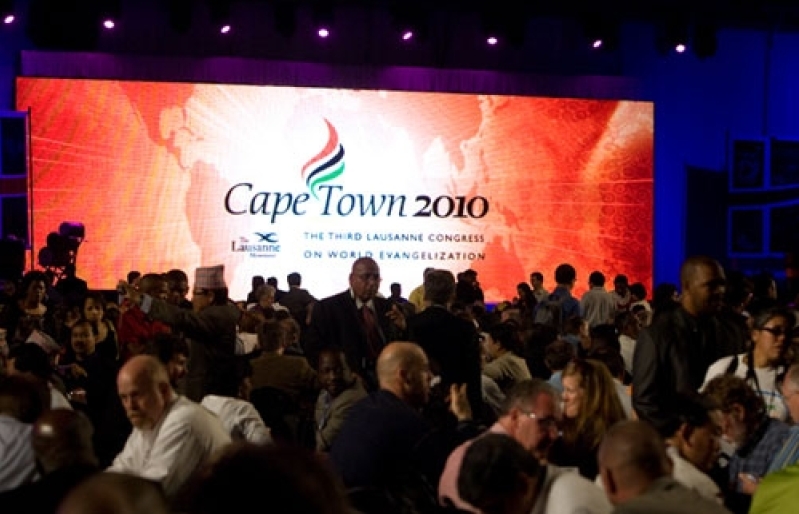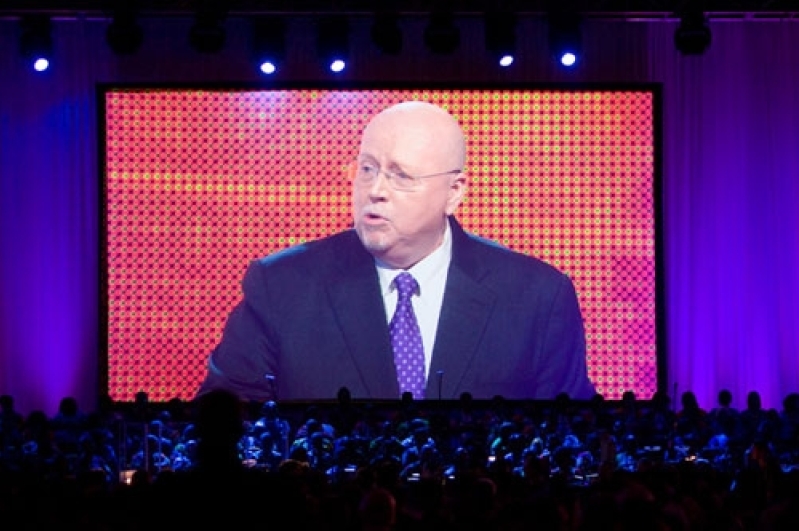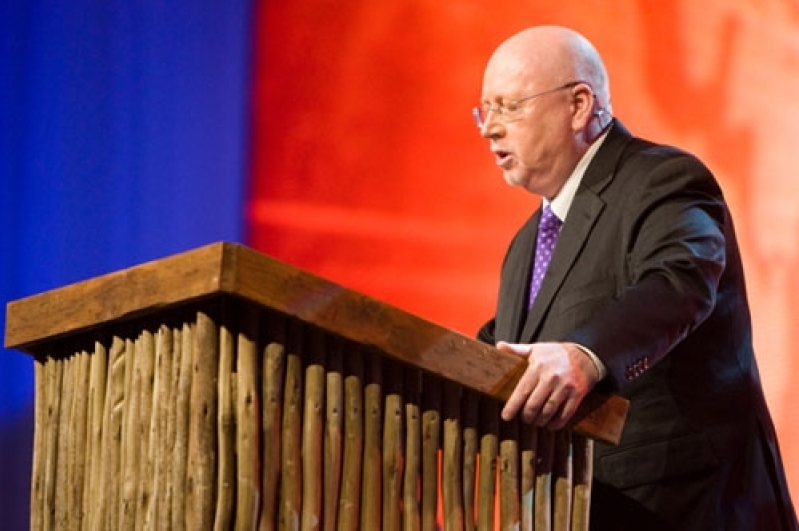




CAPE TOWN, South Africa – To lively African drumbeats and against the lighted backdrop of the trademark African red sunrise, over 4,000 Christian leaders from over 190 nations gathered at the Cape Town International Convention Center to open the Third Lausanne Congress on World Evangelization Sunday.
It was the first time in over 20 years that the Lausanne Movement, a global network of evangelical leaders who work together for world evangelization, held a global conference. The third Lausanne Congress, also known as Cape Town 2010, is described as the most diverse Christian gathering – in terms of ethnicity, denomination, profession, and gender – in the 2,000 year history of Christianity.
Congress participants represent 198 nations, nearly every stream of Christianity, a diverse age range (40 percent of participants are from 20 to 40 years old), and diverse professions (1,200 participants are pastors, 1,200 are scholars and in the academic field, and 1,200 are from the medical, business, and media fields).
“We have come to dream. In those days, the Prophet Joel said when I pour out my Spirit on all people your sons and daughters will prophesize. Your old men will dream dreams and your young men will see visions,” said Doug Birdsall, executive chair of The Lausanne Movement, Sunday evening.
“[A]s we see the grand narrative of redemptive history, we believe that the future is as bright as the promises of God,” he said. “We will reflect this week on the mission of Lausanne – the call to the whole church to take the whole Gospel to the whole world.”
The significance of the Lausanne conferences lays in its founding in 1974. Lausanne I was held in Lausanne, Switzerland, and led by American evangelist Billy Graham. More than 2,700 evangelical leaders from 150 countries gathered for that historic conference that resulted in The Lausanne Covenant – a document defining the theological ground works for collaborative world evangelization. It also provided a framework for unity and serves as the statement of faith for hundreds of Christian organizations worldwide.
Also during Lausanne I, missiologist Ralph D. Winter shifted mission thinking when he gave a presentation about unreached people groups. Winter said the completion of the Great Commission should not be based on national boundaries but on unreached people groups.
More than a decade later, Lausanne II took place in Manila, Philippines. That Congress produced the Manila Manifesto that reaffirmed and expanded upon The Lausanne Covenant and the call to “Proclaim Christ Until He Comes.” The 1989 gathering brought together 3,600 leaders from 190 nations.
On Sunday evening, Birdsall read letters written by Billy Graham and John Stott, key leaders of Lausanne I, to attendees of Lausanne III.
Graham, 92, said he would pray daily for the conference in Cape Town and said the task of Lausanne III is to analyze changes in the world in the 21st century and see how God is calling Christians in this generation.
“[R]emember some things won’t change,” said Birdsall, reading Graham’s letter. The love of God, the good news, and Christ’s commandments do not change, said Graham in his written message.
The respected evangelical leader said he will be praying that God will increase the burden on the hearts of participants for the lost world and that they would rededicate themselves to the commitment to the lost world. He also told attendees to keep their eyes on Jesus Christ every day.
Meanwhile, English Christian leader and Anglican clergyman John Stott, 89, in his letter said he rejoices that the conference is being held in Africa where God is pouring out His blessing. Stott, who was a key figure in drafting The Lausanne Covenant, said he is praying daily for the conference.
“If God is still speaking to the Church as we enter the third millennium, if He has something to say to us, what is it He wants to say,” said Birdsall. “Speak Lord, your servants are listening.”
“Grant us a fresh vision of yourself for your Church.”
Lausanne III will address a wide range of issues facing the Church in the 21st century, including worldviews hostile to Christianity, the threat of terrorism, HIV/AIDS, and the prosperity gospel. The conference will conclude on Oct. 24.







